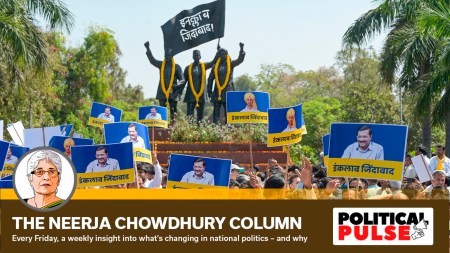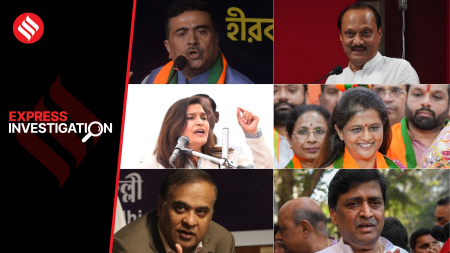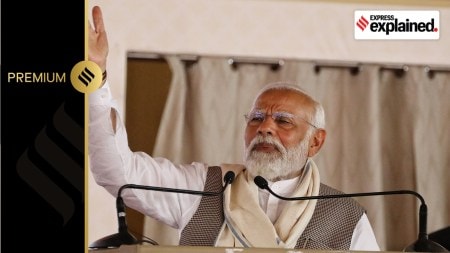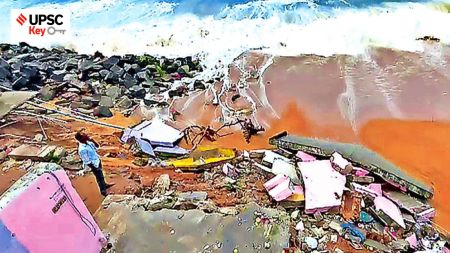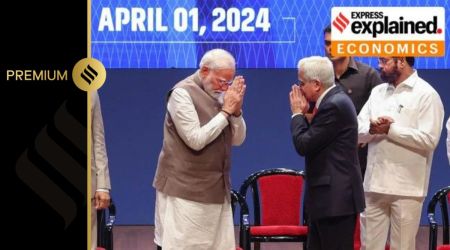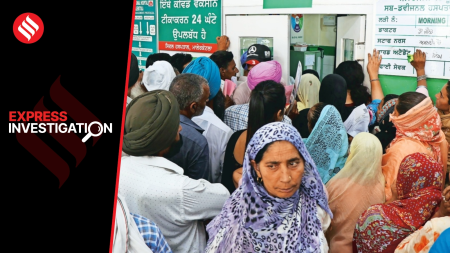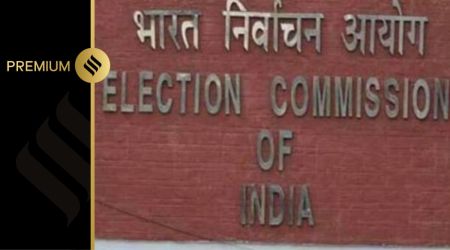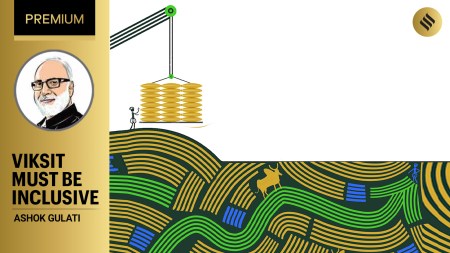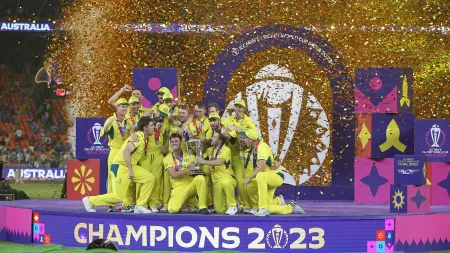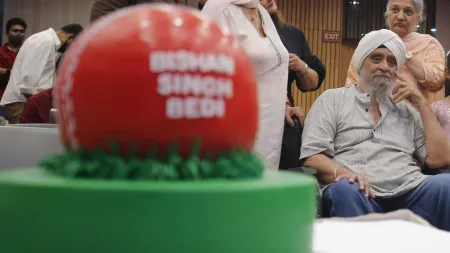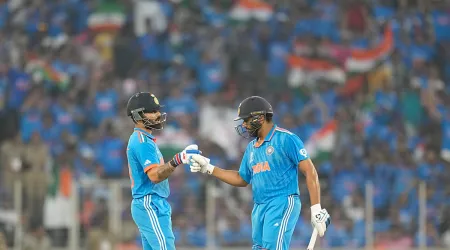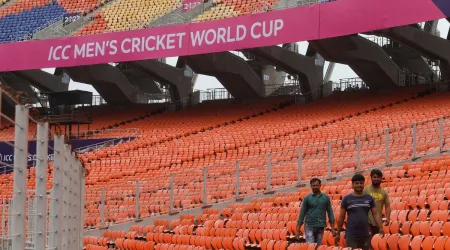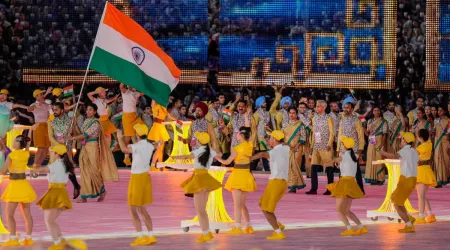- India
- International
Will this be MS Dhoni’s Last Dance?
For 17 IPL seasons, MS Dhoni, with his charm, persona and success has defined Chennai’s summers. But with age catching up, and the end looming, CSK romantics are savouring every moment of him
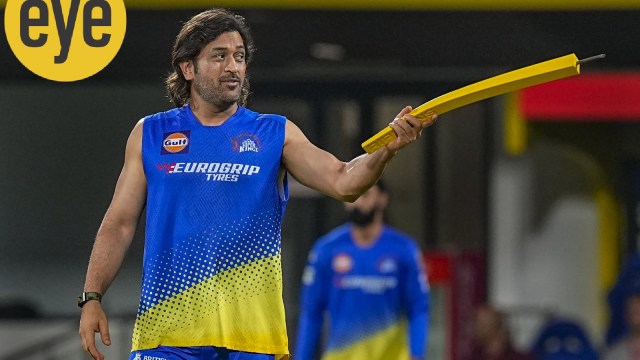 Chennai Super Kings player MS Dhoni during a training session ahead of the Indian Premier League (IPL) 2024 cricket match between Chennai Super Kings and Gujarat Titans, at MA Chidambaram Stadium, in Chennai, Monday. (PTI)
Chennai Super Kings player MS Dhoni during a training session ahead of the Indian Premier League (IPL) 2024 cricket match between Chennai Super Kings and Gujarat Titans, at MA Chidambaram Stadium, in Chennai, Monday. (PTI)Under the canopy in the upper stands of the MA Chidambaram Stadium, billowing in the sea breeze from the Marina Coast are yellow banners that pleaded: “MS, Never Leave Us”. This is the first game of Indian Premier League’s (IPL) Season 17 but some fear this could be their last.
The banner had been held by thousands of men and women in their twenties, wondering whether this would be MS Dhoni’s final season. Or worse, the last time they would see them. Seated beside them were older men, paunchy and balding, in whose minds Dhoni was still invincible. Some of them remembered how several sultry summers ago, he had struck a six into the stands to wrap up a chase, or when he punched the air after clinching the winning run. Watching him now, they were young again. It was yesterday once more.
When MS Dhoni leaves, the lingering remnants of youth, too, would desert them, they fear. “I would never again take the pain of coming to Chepauk to watch an IPL game. Dhoni was the magnet that pulled us to the stadium, despite the heat, traffic and crowd,” Jayaraman, a schoolteacher and a member of CSK cheerleaders Whistle Podu Army, puts it eloquently. As an afterthought, he asks: “Will he ever retire?”
An athlete-deity is immortal in the mind of his devotee, timeless and infallible. But Dhoni is 42, has long relinquished international cricket, his IPL shows are extended cameos. He keeps for a full innings; his batting time has progressively declined. Last season, he faced only 57 balls in 12 innings, that is less than five balls an innings. One in every six balls, soared over the ropes, though, dizzying the crowd. “Athu pothum (that’s enough),” says his self-proclaimed super fan Saravanan Hari, an unmissable presence in the stands, coats of yellow splashed over the body, Dhoni No 7 inked on his chest. “Oru thadavu paathale pothum (Just one sight of him is enough),” he says, twisting his body and shaking his head, as he, along with thousands, waits for the first darshan of Dhoni this IPL season. The “Dhoni, Dhoni…” staccato soundtrack melts into a deafening rhapsody. They would refer to him as Thala (leader), but chant his more tuneful surname, Dhoni.
 Under MS Dhoni, CSK have appeared in 10 IPL finals. No other captain comes close. He has won half of those finals. (Illustration: Suvajit Dey)
Under MS Dhoni, CSK have appeared in 10 IPL finals. No other captain comes close. He has won half of those finals. (Illustration: Suvajit Dey)
Anxiety swirled through the crisp breeze. A day before the game, Dhoni had handed over the captaincy to Ruturaj Gaikwad. He is phasing out his responsibilities, and at the end of the season, he could be gone too. Saravanan can’t wrap his head around it. He pauses in stupor, and then gathers himself. “Sir, ethuku kavalai (Why do you fear)? Just enjoy every moment of him,” he says. Beside him a teenager asks his brother: “Anna, Tirupati poidlamai? (Shall we go to Tirupathi?) The belief is that your desire will be granted if you shave your head in Tirupati, six-odd hours from the city, in neighbouring Andhra Pradesh.

Suddenly, the stadium shook in pure joy, echoing and re-echoing within the concrete canyon. Thousands of people had jumped wildly to their feet, joyously screaming. Dhoni strode onto the field, the end of his tress tugging his muscular shoulders, his snug-fit training shirt and shorts shining in the floodlight, that flickered to life after the ostentatious opening ceremony, where a mere flicker of his face gathered more fervent applause than the dance and music show by some of the countries leading singers, among them the man they call Mozart of Madras, AR Rahman.
Dhoni walked to the edge of the practice pitch, poked his head out and looked up. He could see nothing above except the packed, towering stands that seemed swaying, and he could see no clouds or the black sky but only a sky of yellow faces. He could feel the breath of 50,000 lungs upon him, 100,000 eyes watching his every move. For the briefest instant, he walked with his eyes closed, soaking in the adulation. Perhaps, Dhoni would miss the stands and city, just as the stands and city would miss him.
This atmosphere has defined the scorching summers of the city since 2008. The grand old city would miss this when he leaves the franchise. The music, the joy, the bonding, and Dhoni binding it all together like an orchestra conductor, modulating the mood of their evenings and touching their lives. A deathly silence strikes Saravanan when he hears the retirement talk. “I haven’t thought of it. Rather, I can’t think of it. What will I do? What will we do?” Saravan asks, more like an aside, in the tone of an existential pang.
Life will move on even after Dhoni’s farewell. An inorganic connection is already being struck with Ruturaj Gaikwad and Shivaji Rao Gaikwad, better known as Rajinikanth, the biggest celluloid star of the state. There are other new stars like Rachin Ravindra and Matheesha Pathirana blossoming. “Of course, we would support CSK, but it wouldn’t be the same again,” says Jayaraman. The yellow jersey will lose some of its soul.
 A quick glance at MS Dhoni’s captaincy career.
A quick glance at MS Dhoni’s captaincy career.
*******
The summer of 2008 was the harshest of the decade in the State. Power interruptions were common. Water was scarce. Dispute over water sharing with neighbouring states, Kerala and Karnataka, intensified. Industries were forced to work in half their capacity. The mercury rose to intolerable levels; the Opposition leader J Jayalalithaa spent most of the year in her controversial Kodanadu estate in Ooty. Then, Dhoni came like a spell of summer shower, bringing freshness and hope.
His acquisition is a compelling story. Other franchises pursued the five icon players, even if most were ageing. But CSK didn’t push for any because they knew they had to give them 15 per cent more wages than what they would to the most expensive player. The team management saw this as an advantage and threw their kitchen sink on the auction table for Dhoni. It cost them $1.5 million, the most expensive signing of the year. But the cricketing logic was sharp — Dhoni was only 26, had already won the T20 World Cup and in a few years would become the most important figure in Indian cricket.
Thus began the Dhoni story in Chennai, not by default or design, but by destiny. He straightaway endeared to the audience. In his first appearance in a function in the then team hotel Adyar Gate, he didn’t resort to the staple stuff of trying to force a few words in Tamil, or come draped in veshti. He was both warm and reclusive at the same time. He didn’t do TV shows or give interviews, kept his mind unto himself and his close associates, seldom appeared in public functions, barely ever flaunted his wealth, the commercials he appeared were cultured and kept himself away from controversies. In the anonymity of the night, some said he zipped his super bikes on the sprawling Mount Road. Or he would clandestinely visit the racing racks in Sriperumbudur and take a spin on a race car. All the unverified accounts embellished his mystique (and mystery). He was original; walked his own path.
Apt to borrow a one-liner from Rajinikanth’s Padayappa (1999), that the stadium DJ diligently drops in whenever the on-field screen flashes Dhoni’s name: “En vazhi, thani vazhi.” Roughly translated as “My path, a unique path.”
Bikes and long hair, helicopter shots and flamboyance, you could trace a Rajini-like trajectory. The massy theatrical superhero. He of the sunglass-flip, the cigarette-flick, the slo-mo walks, the iconoclast actor who redefined the image of a hero, that you needed to look and act in a particular way to succeed.
 Chennai Super Kings (CSK) captain Ruturaj Gaikwad with teammate MS Dhoni during a training session ahead of the IPL 2024 match between CSK and RCB. (PTI Photo)
Chennai Super Kings (CSK) captain Ruturaj Gaikwad with teammate MS Dhoni during a training session ahead of the IPL 2024 match between CSK and RCB. (PTI Photo)
Dhoni’s former colleague and the finest cricketer the city has produced, R Ashwin, delves into the city’s psychology, “Chennai’s love for Dhoni, Chennai’s love for Rajinikanth… So on and so forth, you can keep on going. The city has a tendency to celebrate people and love them. Or what they bring to the city and what flavour they bring. Chennai loves its sports and cinema. And Dhoni has successfully won titles for CSK, and that is an important factor.”
Just like Rajinikath kept churning out blockbusters in heaps, and before that another outsider who eventually became the CM, MG Ramachandran, Dhoni and Co delivered titles in abundance. Tamil Nadu had won the Ranji Trophy only twice, despite the love, passion and infrastructure for the game in the State. In 14 seasons of the IPL they have competed in, they won the trophy five times besides a pair of now-scrapped Champions League silverware. The State had birthed cricket stars, but not a megawatt star, until Dhoni came along.
“The lack of trophies on the shelf was a big factor. I think the ability of Dhoni, along with his charisma and nature, and the trophies (his team won) has doubled up wonderfully. People would accept you as long as they produce results, and I think Dhoni has wonderfully produced the result,” the spinner with 516 Test wickets explained to this newspaper.
He deconstructs the myth of the audience liking him for his flamboyance. “It probably helps in the other parts of the country but I would probably think Chennai is a more conservative city compared to others. It has a lot of old-school values, and 70 per cent of the people who love Dhoni would say, you know what, see how humble he is. They ask him a question and he answers in a simple way. They admire him for that, more than for his bikes and hair, which would probably go down well with other parts of the country,” he says.
So has his “etiquette and well-mannered nature”. “The one thing that people don’t talk enough about Dhoni is when he talks, even if he doesn’t like something or doesn’t like you, he is so objective and well mannered in putting that thought across. He never hurts people. If you don’t hurt people, your good nature comes through,” says Ashwin. The masses in Chennai would agree.
Unlike the heroes on the silver-screen, Dhoni was real, a hero in flesh and bone, a hero in front of them. He was nijam (real). Not an illusion or poi (lie). He is not filmy. Only that reel stars can act forever. Sportsmen have to retire at some point.
******
In the season opener against RCB, hope buzzed when CSK lost their fourth wicket, chasing RCB’s 174 on the opening night of IPL-17. Dhoni might walk in and hit the winning runs, the perfect script to a perfect match. The DJ, heightening the crowd’s anticipation, chimed in another popular line from the Rajinikanth-blockbuster Muthu (1995): “Naan eppo varuven, eppadi varuvennu yaarkkum theriyadhu. Aana vara vendiya nerathula correct aa varuven.” I don’t know when I would come or how I would come. But I will come at the right time.”
The right time never arrived. The stadium celebrated the victory. But underneath, hollowness tossed and twisted. Even as CSK players emptied the dressing room, the crowd lingered to catch one last glance of him — MS, Hero, Thala, Dhoni. When there was no one left, a numb sweat shivered through their spine. “Will they see him ever again?” the question rumbled onto the now quiet shores of Marina at midnight.
Despair displaced joy on their face. Super fan Saravanan, picking himself up, swears he would manage tickets for all games; Dhoni look-alike Rishabh Malakar is not quite optimistic and carefully tucks the ticket into his wallet. “I will frame the ticket, if this happens to be my last game (of watching Dhoni),” he says. Saravanan has carefully preserved tickets of every match he has watched.
The streets outside the stadium are a mess of humans and vehicles. On the sideways of Wallajah Road and Bells Road, vendors are still selling Dhoni caps and shirts. “We have stacked double the numbers we usually do. This could be Dhoni’s last season, and hence there would be more demand,” says Syed Naseeruddin Shahbaz, who owns Dhoni Sports, a shop on the bend of the Wallajah Road, from where the Whistle Podu Army starts their march to the stadium.
Nearly 90 per cent of jerseys are yellow and blare the No 7, though the texture differs. “Have you seen any other jerseys?” quizzes Muthupandi, a roadside vendor. That evening and night alone, he had sold around 1,000 jerseys, each at a minimum of Rs 250. He was a fisherman, but post tsunami in 2004, where he lost several of his friends, he is scared of the sea. “There was a time when I used to sell 1,000 karaipodi (or silver belly, a type of fish found mostly in coastal Tamil Nadu), but now my catch is Dhoni jerseys,” he says. He has never watched a game inside the stadium, or even on the television. But Dhoni is his favourite player. “Because, his jerseys sell like no others,” he says.
Thus, when Dhoni retires, an industry around him, too, would collapse. The fans would have to discover a new idol, the city would have to find new ways to define their summers, the DJ has to wrack his head over fresh punchlines (those of Rajini seamlessly fitted with Dhoni) to keep the audience engaged, the jersey-sellers would have to find a fresh name and number. Middle-aged men would lose their last slice of youth, the young would grow older, and the banners would keep fluttering under the canopy roofs: “MS, Don’t Leave Us.”
Get latest updates on IPL 2024 from IPL Points Table to Teams, Schedule, Most Runs and Most Wickets along with live score updates for all matches. Also get Sports news and more cricket updates.


